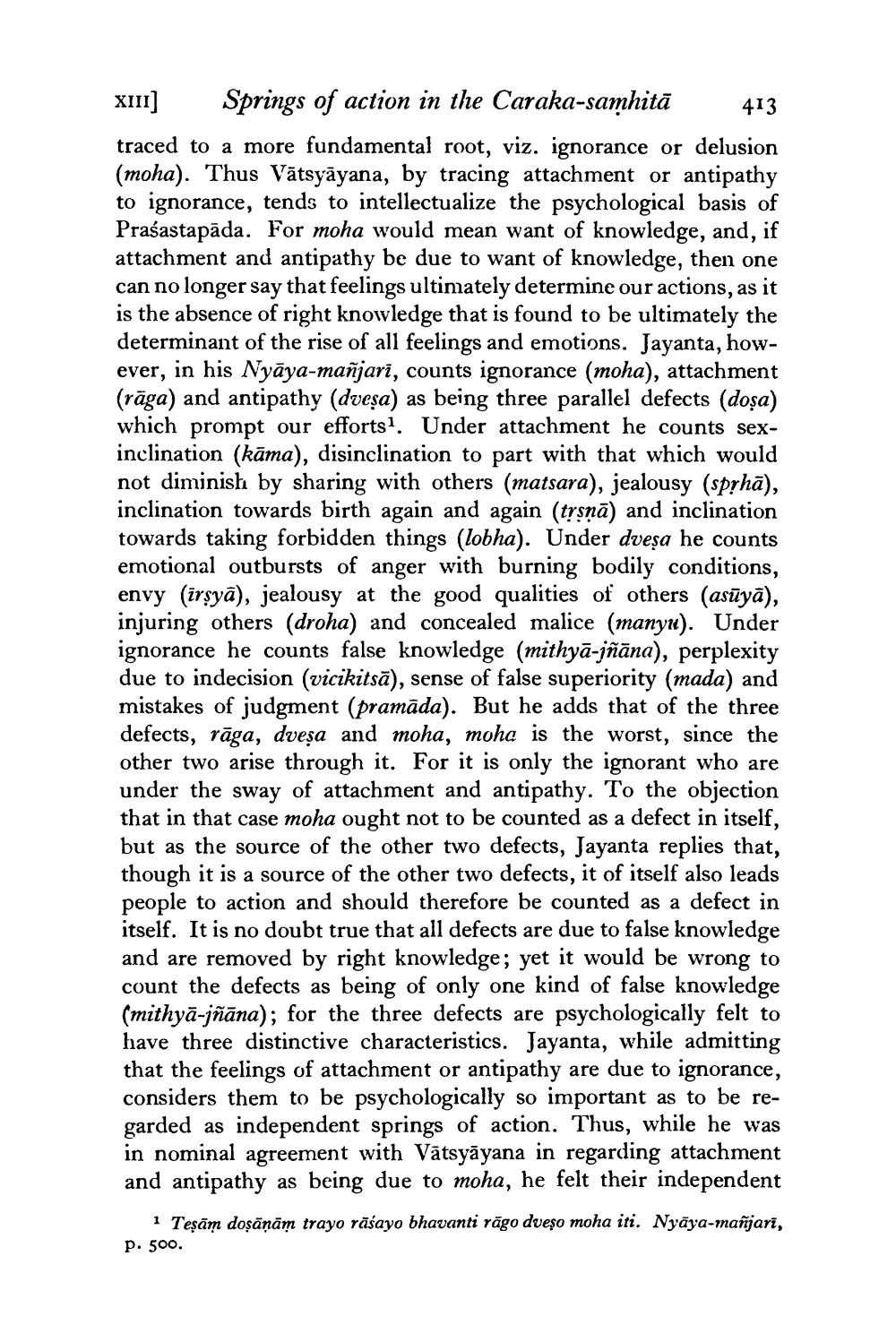________________
x111] Springs of action in the Caraka-samhitā 413 traced to a more fundamental root, viz. ignorance or delusion (moha). Thus Vātsyāyana, by tracing attachment or antipathy to ignorance, tends to intellectualize the psychological basis of Prasastapāda. For moha would mean want of knowledge, and, if attachment and antipathy be due to want of knowledge, then one can no longer say that feelings ultimately determine our actions, as it is the absence of right knowledge that is found to be ultimately the determinant of the rise of all feelings and emotions. Jayanta, however, in his Nyāya-mañjarī, counts ignorance (moha), attachment (rāga) and antipathy (dveșa) as being three parallel defects (dosa) which prompt our efforts. Under attachment he counts sexinclination (kāma), disinclination to part with that which would not diminish by sharing with others (matsara), jealousy (sprhā), inclination towards birth again and again (trsņā) and inclination towards taking forbidden things (lobha). Under dveșa he counts emotional outbursts of anger with burning bodily conditions, envy (irsyā), jealousy at the good qualities of others (asāyā), injuring others (droha) and concealed malice (manyu). Unde ignorance he counts false knowledge (mithyā-jñāna), perplexity due to indecision (vicikitsā), sense of false superiority (mada) and mistakes of judgment (pramāda). But he adds that of the three defects, rāga, dveșa and moha, moha is the worst, since the other two arise through it. For it is only the ignorant who are under the sway of attachment and antipathy. To the objection that in that case moha ought not to be counted as a defect in itself, but as the source of the other two defects, Jayanta replies that, though it is a source of the other two defects, it of itself also leads people to action and should therefore be counted as a defect in itself. It is no doubt true that all defects are due to false knowledge and are removed by right knowledge; yet it would be wrong to count the defects as being of only one kind of false knowledge (mithyā-jñāna); for the three defects are psychologically felt to have three distinctive characteristics. Jayanta, while admitting that the feelings of attachment or antipathy are due to ignorance, considers them to be psychologically so important as to be regarded as independent springs of action. Thus, while he was in nominal agreement with Vātsyāyana in regarding attachment and antipathy as being due to moha, he felt their independent
1 Teşām doşāņām trayo rāśayo bhavanti rägo dveşo moha iti. Nyāya-mañjari, p. 500.




